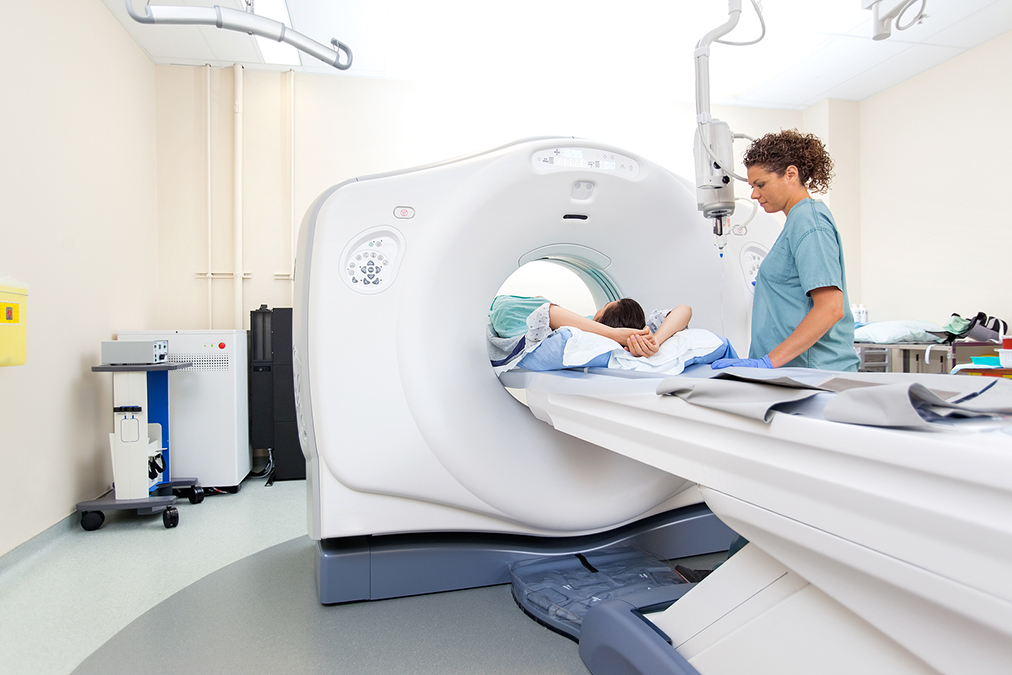 Hypothyroidism has many subtle symptoms such as lack of energy and increased body weight.
Hypothyroidism has many subtle symptoms such as lack of energy and increased body weight.
But something as serious as sudden heart failure and potential death, that´s not often discussed.
A new study in the latest Journal of the American Heart Association, however, warns that a specific type of hypothyroidism can cause up to 65% increased risk in heart failure.
Iodine plays a role in many medical procedures, mostly as a contrast agent for diagnostic imaging procedures like X-rays, CT scans, angiographies, and urographies.
It is common knowledge that high iodine exposure can cause hypothyroidism, but because medical specialists believe that few people develop it after being exposed to iodine during diagnostic scans, the scans are assumed to be safe. A research team from the U.S. Veterans Health Administration wanted to confirm that this was, indeed, true.
The study observed 45,470 veterans, predominantly men, with an average age of 61.1 years. These individuals, who had normal thyroid function at the beginning, were monitored for any development of hypothyroidism following exposure to iodine contrast.
The researchers meticulously recorded serum thyroid-stimulating hormone (TSH) and thyroid hormone levels within 60 days following iodine contrast administration. They excluded participants with a history of thyroid disorders, heart conditions, or related treatments.
Of the total participants, 7.4% developed hypothyroidism post-iodine exposure. The study revealed that over an average follow-up period of 3.6 years, 12.5% of the subjects developed heart failure.
Here are the detailed findings.
-
1. Those with iodine-induced hypothyroidism showed an 11% higher risk of heart failure compared with those who did not develop hypothyroidism after the exposure.
2. The risk was more pronounced in women, at 65% higher versus 8% higher for men.
3. Subclinical hypothyroidism, a condition in which TSH is high but thyroid hormone is still normal, showed a 26% increased risk of heart failure.
This study is significant because it identifies iodine contrast administration as a new risk factor for heart failure, especially following the onset of hypothyroidism or subclinical hypothyroidism.
It also serves as a crucial wake-up call for healthcare professionals. It suggests that patients undergoing procedures involving iodine contrast should be closely monitored for hypothyroidism and subsequent heart failure risk, particularly in women.
Dietary iodine is, of course, essential for proper thyroid function. Your thyroid gland uses iodine to produce thyroid hormones, which are critical for metabolic regulation, growth and development and, as we see here, heart function. A dietary iodine deficiency can lead to hypothyroidism too.
But the kind of iodine overdose we receive in diagnostic scans can destroy thyroid cells and thereby cause hypothyroidism in some people. So just keep it in mind before you subject yourself to unnecessary scans.

 Multiple Sclerosis
Multiple Sclerosis Banishing Bronchitis
Banishing Bronchitis Gum Disease Gone
Gum Disease Gone Overcoming Onychomycosis
Overcoming Onychomycosis Neuropathy No More
Neuropathy No More The Prostate Protocol
The Prostate Protocol Brain Booster
Brain Booster
 Ironbound
Ironbound
 Solution for Shingles
Solution for Shingles
 The Bone Density Solution
The Bone Density Solution
 The Ultimate Healing Protocol
The Ultimate Healing Protocol
 The Parkinson's Protocol
The Parkinson's Protocol
 The Chronic Kidney Disease Solution
The Chronic Kidney Disease Solution
 Overthrowing Anxiety
Overthrowing Anxiety The Fatty Liver Solution
The Fatty Liver Solution The Hypothyroidism Solution
The Hypothyroidism Solution
 The End of Gout
The End of Gout The Blood Pressure Program
The Blood Pressure Program
 The Oxigized Cholesterol Strategy
The Oxigized Cholesterol Strategy
 Stop Snoring And Sleep Apnea Program
Stop Snoring And Sleep Apnea Program
 The Arthritis Strategy
The Arthritis Strategy The Vertigo & Dizziness Program
The Vertigo & Dizziness Program The 3-Step Diabetes Strategy
The 3-Step Diabetes Strategy Hemorrhoids Healing Protocol
Hemorrhoids Healing Protocol The Erectile Dysfunction Master
The Erectile Dysfunction Master Weight Loss Breeze
Weight Loss Breeze The IBS Program
The IBS Program The Insomnia Program
The Insomnia Program The Migraine and Headache Program
The Migraine and Headache Program The Neck Pain Solution
The Neck Pain Solution The Menopause Solution
The Menopause Solution The Ejaculation Master
The Ejaculation Master The TMJ Solution
The TMJ Solution The Acid Reflux Solution
The Acid Reflux Solution The Fibromyalgia Solution
The Fibromyalgia Solution The Psoriasis Strategy
The Psoriasis Strategy